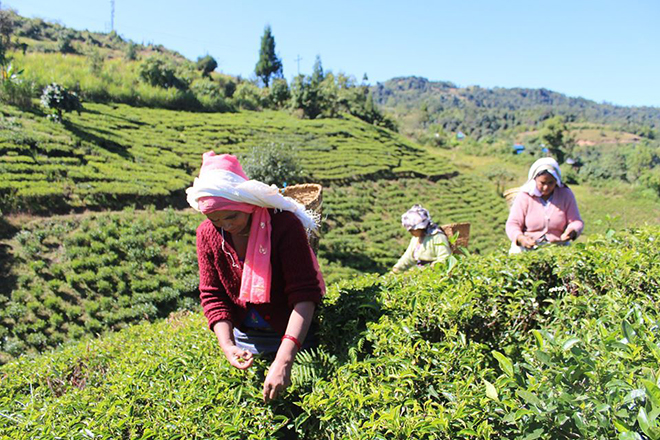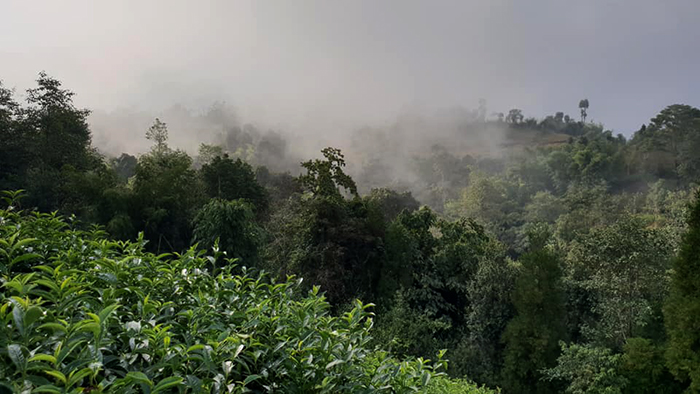This story started around 2000. There were very few tea factories in Nepal, but tea farming was on a rise: new gardens sprang up like mushrooms and thousands of small farmers started growing tea. However, there was no one who would process the leaves and, inevitably, their price was falling rapidly. Within a couple of seasons, it dropped from 40 to mere 8 rupees per kilogram.
For many farmers this rate was unbearable – they did not even manage to cover the operation costs and often ended up selling their tea below cost. This in turn led to an end of many of the recently founded tea gardens. The farmers went on to plough them up and they started growing some other crops.
How Milan started to process her own tea
Not so the heroine of this story. Mrs Milan Kumari Khatri raised six children and she had plenty of hard-won experience. An indomitable optimist, she was not intimidated by the situation and decided to process the leaves from her garden herself.
She had no equipment that is typically found in tea factories. She let the harvested tea leaves wither in the sun, rolled them by hand and dried them in the sun during the day and over a fire at night.
She sold her first tea to her neighbours, but also to tourists who occasionally passed by. Quickly, her manually processed teas became widely popular – not only in Ilam, but also in the capital, Kathmandu.
Soon, her own tea produce was insufficient. Mrs Milan started buying fresh tea leaves from her neighbours. Because of her previous experience with big tea factories she decided to pay tea farmers fair prices. Since then, she has always bought tea leaves at a higher price than her competition.
Small factory Sakhejung
On 2008, Mrs Milan registered the Kanchangha Organic Hand Made Tea Industry trade mark and purchased her first industrial drier. In 2013, she opened Sakhejung − a small tea factory with modern tea-processing equipment.
The Sakhejung factory is in northern Ilam near Nepal’s east border. Its yearly production amounts to about 20 tonnes of tea. It is a family business with eighteen permanent and fifteen seasonal employees.
Not only a stunning story but an excellent tea
We in Klasek Tea discovered Mrs Milan’s teas only last year. We were enchanted with their pure, clear and unorthodox taste. The unrepeatable character of the teas from the foothills of the Himalayas stands out thanks to careful manual processing. We selected two of Mrs Milan’s autumnal flush teas from the opposite sides of the taste spectrum – Sakhejung Gold a Sakhejung White. We do hope you will enjoy them as much as we do!






































